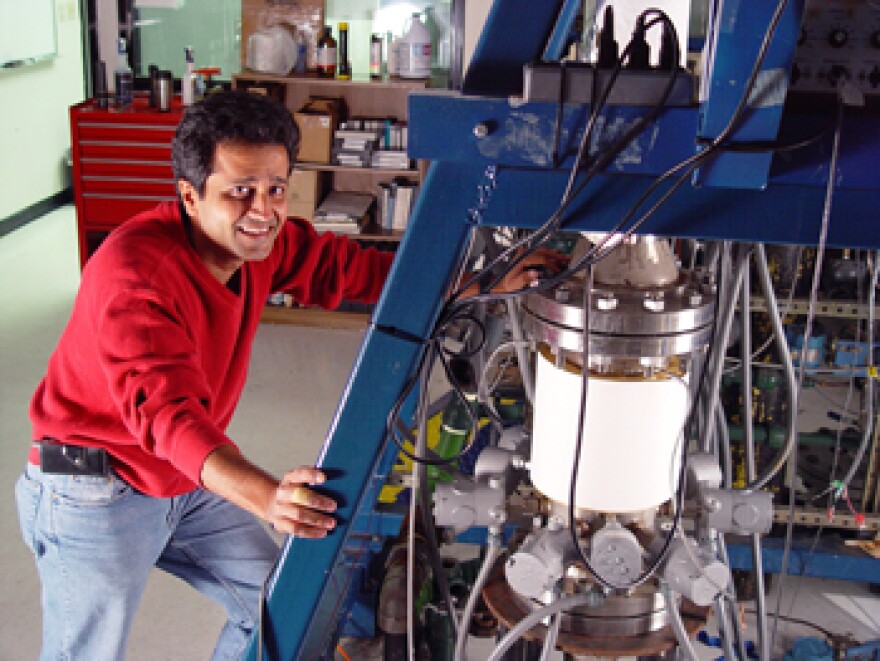For half-a-century, Florida was the center of gravity for America’s manned space program. Now that program is essentially on hold. Tom Flanigan reports the push is now on to redirect all the Florida resources once dedicated to the manned space effort to more earthbound uses.
Today, former Florida Lieutenant Governor Frank Brogan is Chancellor of the State University System. But he vividly recalls something that fired his imagination when he was a little boy.
“…a little boy who grew up as a product of Sputnik and then our subsequent race to space, who marveled with his classmates watching black and white television as Neil Armstrong planted the first human footprint on the moon.”
Which is why the grown-up Frank Brogan was nearly broken-hearted by something he saw just weeks ago.
“That Space Shuttle Discovery on the back of that 747 being transported to a museum as its final resting place.”
For Brogan and the thousands of Floridians who’ve been connected to the U.S. humans in space effort over the years, it was the end of an era. But that program, Brogan says, wasn’t just about launching rockets into the “final frontier”.
“And it isn’t just about what we’re going to find in the far reaches of space. It’s also about what we find will translate back to what we need on planet earth such that everyone can live a better quality of life.”
Indeed, so much of today’s taken-for-granted technology is a direct spin-off from the U.S. space program…from our ever-shrinking computers and cell-phones, to our GPS devices, new fabrics and miracle drugs, just to name a few everyday offshoots. The big question is, can the accelerated research and development that produced those kinds of things because there was a vibrant space program continue now that the space program has geared way down? A confident “yes” comes from NASA researcher Fay Collier. He says today’s National Aeronautics and Space Administration is as involved in aeronautics as it is in space.
“Well this is one of the most exciting projects at NASA right now and we’re working to mitigate environmental impacts of aviation. So we’re working fuel burn – reducing fuel burn reduces carbon footprints – we’re working noise footprints, trying to reduce community noise, and all this has to do with improving the subsonic transportation fleet.”
NASA also has a powerful partner in Florida to help with the basic nuts and bolts of that effort. It’s the Florida Center for Advanced Aero-Propulsion. That’s a coalition of four institutes of higher learning: the University of Florida, Florida State University, the University of Central Florida and Embry-Riddle University. FSU Vice President of Research Dr. Kirby Kemper says that forms a whole much bigger than the sum of its parts.
“And it’s through the universities and working with industry that I believe that we have the obligation as well as the opportunity to move us forward.”
That forward movement is now likely to be faster with the opening of the center’s new Aeropropulsion/Mechatronics/Energy lab in Tallahassee. Some of its cutting-edge projects are robots that run and climb.
“So this and its two-legged predecessor are the world’s fastest legged climbing robots in the world.”
There are advanced experiments – many of them noisy – on ways to quiet commercial jet engines.
“So, it’s very loud and it produces very strong supersonic micro-jets that we can use in these high-speed flow facilities.”
The Center’s Assistant Scientist Jonas Gustavsson says his facility specializes in the kind of basic research the big aerospace companies seldom do anymore…
“That’s just not feasible for a lot more of the cutting edge type of research. They can only do production stuff where they know that this is going to work. We’re just going to need to tweak it a little bit. This is more of pilot research and for these more experimental designs.”
Gustavsson says the hope is that the Pratt and Whitneys and Lockheed Martins of the world will contract with facilities like his and NASA’s to help design the aircraft and other advanced technology of tomorrow.


